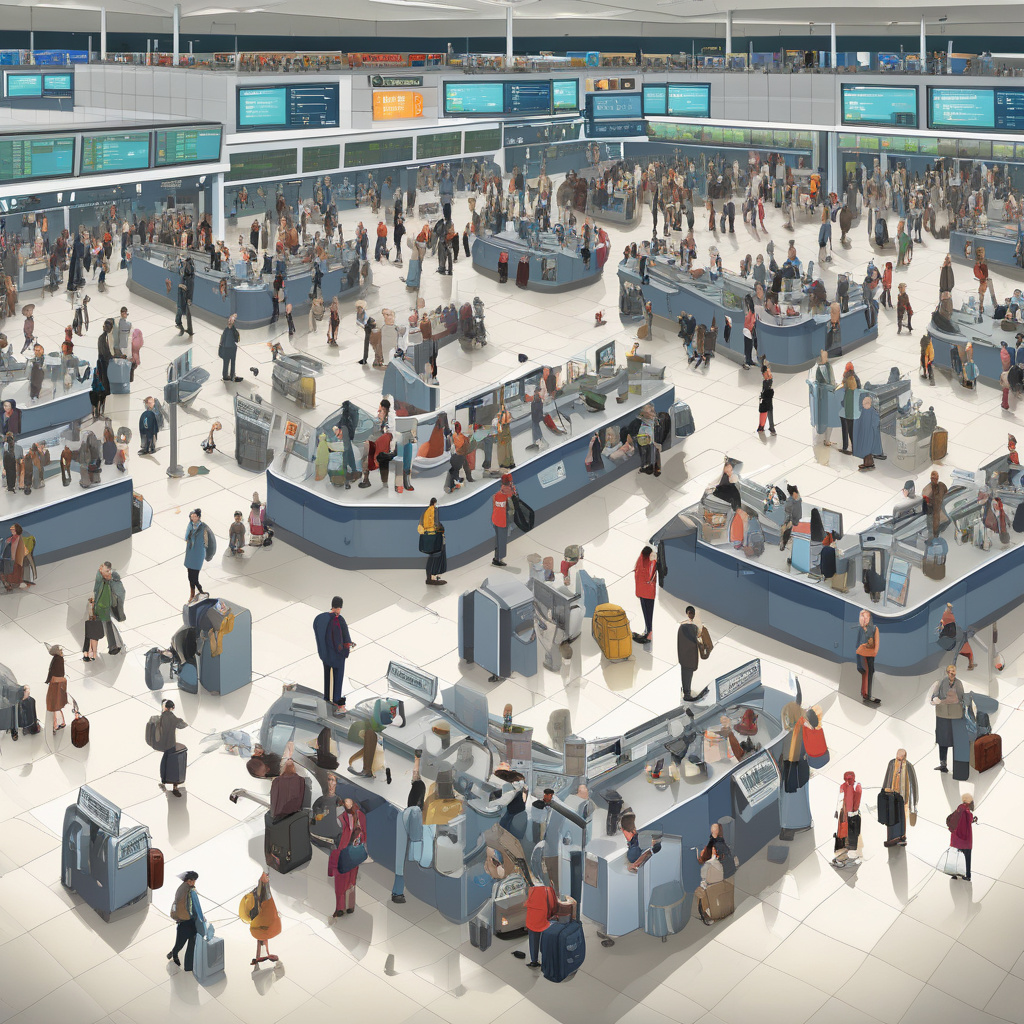Cyberattack Disrupts Major European Airports: The Vulnerability of Aviation’s Digital Systems
In a recent turn of events, Collins Aerospace confirmed that its Muse software fell victim to a cyberattack, sending ripples of disruption across major airports in Europe. This incident not only sheds light on the growing threat of cybercrime but also raises crucial questions about the resilience of the aviation industry’s shared digital infrastructure.
The aviation sector has long been a prime target for cybercriminals due to its reliance on interconnected digital systems to ensure the safe and efficient operation of flights. From booking systems to air traffic control, these systems play a critical role in ensuring the smooth functioning of airports and airlines. However, the recent cyberattack on Collins Aerospace’s Muse software has exposed the vulnerabilities inherent in these complex networks.
The Muse software, designed to streamline airport operations and enhance passenger experience, was targeted by hackers, leading to widespread disruptions in airport services across Europe. Flight schedules were thrown into disarray, check-in systems malfunctioned, and communication channels were compromised, highlighting the far-reaching impact of such cyber incidents.
This attack serves as a stark reminder of the ever-present threat that cyberattacks pose to the aviation industry. With airports and airlines increasingly relying on digital technologies to drive efficiency and innovation, the need for robust cybersecurity measures has never been more pressing. The interconnected nature of aviation’s digital systems means that a breach in one component can have cascading effects on the entire ecosystem, disrupting not just individual airports but the broader air travel network.
The incident also underscores the importance of collaboration and information sharing within the aviation industry to strengthen cyber defenses. As airlines and airports grapple with evolving cyber threats, sharing insights and best practices can help bolster the sector’s resilience against future attacks. Additionally, investing in cutting-edge cybersecurity solutions and regularly updating systems can help mitigate the risks posed by sophisticated cyber adversaries.
Furthermore, the cyberattack on Collins Aerospace’s Muse software highlights the need for greater transparency and accountability in the aviation sector. As passengers entrust their personal information and safety to airlines and airports, industry stakeholders must prioritize cybersecurity and be forthcoming about the measures in place to safeguard digital systems. Building trust with customers and regulators is essential in maintaining the integrity of the aviation industry in an increasingly digital world.
In conclusion, the recent cyberattack on major European airports serves as a wake-up call for the aviation industry to fortify its defenses against cyber threats. By investing in robust cybersecurity measures, fostering collaboration among industry players, and prioritizing transparency, airports and airlines can enhance the resilience of their digital systems and ensure the seamless operation of air travel in an era of escalating cyber risks.
cybersecurity, aviation, digital systems, European airports, cyberattack
